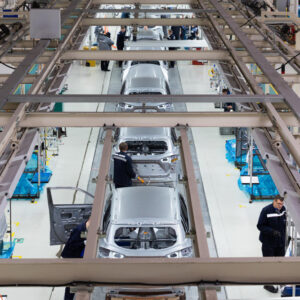The Future of the Automobile Industry: Trends, Challenges, and Business Opportunities
-
By admin
- August 22, 2025
Show Comments (0)
Hide Comments (0)
0
0
votes
Article Rating
Subscribe
Login
0 Comments
Oldest
Newest
Most Voted
Inline Feedbacks
View all comments
Recent Posts:
Mumbai Set for Redevelopment Surge: Unlocking 44,000+...
34views
0likes
0comments
-
By admin
- September 12, 2025
Maharashtra Government Ends NHM Employees’ Strike with...
57views
0likes
0comments
-
By admin
- September 11, 2025
Fitch Upgrades India’s Growth Forecast to 6.9%...
36views
0likes
0comments
-
By admin
- September 11, 2025















